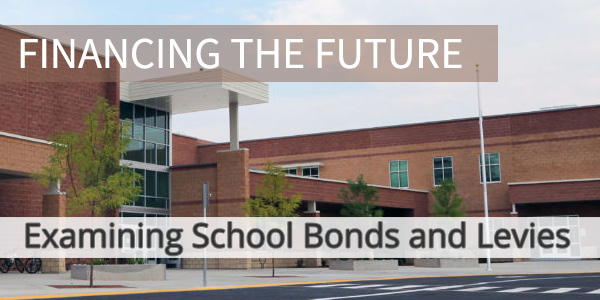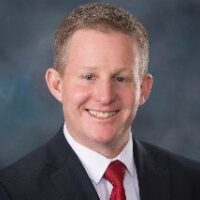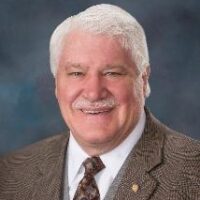
On Feb. 9, House Minority Leader Mat Erpelding convinced the House Local Government Committee to introduce a proposal to reduce Idaho’s two-thirds supermajority.
And that’s as far as it’s likely to go. Erpelding has been told his proposal will not get a hearing. By his count, there have been 11 attempts to reduce the supermajority since 1990, and none have made it through the Legislature.
“I guess I can get in line,” Erpelding, D-Boise, said Friday.
The “supermajority” requires school districts and local governments to get two-thirds support for bond issues. Opponents say the supermajority sets an unreasonably high bar, and often forces local governments to try and try again to pass a bond issue. The supermajority’s supporters say it should be difficult for local governments to enter into long-term debt — and capital projects should have widespread community support.

It’s a debate as old as Idaho itself.
“The two-thirds rule has been in Idaho’s Constitution since statehood and makes good sense,” said Rep. Stephen Hartgen, R-Twin Falls, who went to Facebook a couple weeks ago to declare Erpelding’s proposal dead on arrival.

The two-thirds threshold for bond issues is not unique, even within Idaho election law. Plant facilities levies — a 10-year property tax to cover building maintenance and repairs — require a 55 percent, 60 percent or two-thirds majority, depending on the size of the levy. Supplemental levies, a one- or two-year property tax, can pass with a simple majority.
However, the two-thirds supermajority is something of an oddity, in comparison to other states. Only Kentucky has as high a hurdle.
It’s “absolutely more difficult” to pass a bond issue in Idaho, said Stan Olson, a retired Boise School District superintendent who worked in Michigan and Wyoming before moving to Idaho.
It takes deep community engagement to clear the two-thirds threshold. And it takes a little luck.
“Sometimes, school districts are victims of bad times,” Olson said.
Olson knows about timing. Under his watch, the Boise district secured passage of its last bond issue, in 2006. Boise ran its bond issue at the tail end of Idaho’s building boom, and well before the Great Recession — a fact not lost on Olson.
It would be tempting to couch the supermajority as a partisan debate, but that hasn’t always been the case.
In January 2006, then-Gov. Dirk Kempthorne opened the session with an appeal to lower the supermajority. And as Betsy Russell of the Spokane Spokesman-Review reported at the time, the idea received some preliminary interest from Kempthorne’s fellow Republicans in legislative leadership. However, the idea went nowhere.
Even during the recession, Republican state superintendent Tom Luna floated the idea of addressing the supermajority, but made no concerted push to amend it.
Neither Gov. Butch Otter nor state superintendent Sherri Ybarra have pushed to reduce the supermajority.
Meanwhile, school trustees have been steadfast in their opposition to the supermajority. For more than a decade, the Idaho School Boards Association has been on record supporting a change.
When trustees made their annual lobbying trip to the Statehouse last week, Soda Springs trustee Jim Stoor made the argument on ISBA’s behalf.
Stoor told the Senate Education Committee of Soda Springs’ plight. The district uses a $400,000 plant facilities levy to cover building maintenance, but this money is all but maxed out. Soda Springs went to voters in November, seeking $6.5 million to replace a middle school gymnasium built in 1934. The bond issue received 61 percent support, but not the required two-thirds backing.
“Lowering the supermajority is consistent with the democratic ideal of majority rule, while also protecting the minority from more overzealous tax increases and supporting the improvement of communities and infrastructure,” Stoor said.
But as Stoor was quick to concede, reducing the supermajority is a tough proposition.
Since the supermajority language is incorporated into the state Constitution, it would take a two-thirds vote in the House and the Senate just to take a change to voters. Then, a majority of voters would have to ratify a change.
In other words, the political odds are daunting.
But, Erpelding says, the supermajority causes its own problems. Some districts have to run repeat bond issues in search of an elusive two-thirds support — at taxpayer cost. Others can never hit that threshold, and go back to the state for help fixing unsafe schools.
“It causes wider deficits and bigger funding challenges,” Erpelding said.
Idaho Education News and Boise State Public Radio are partnering to produce a week-long series about how the statewide elections will affect students, communities and taxpayers.
Here are links to the entire series:
- Across Idaho, a $714 million election day looms
- The legacy of bonds in Boise
- A look at two Boise elementary schools embracing the wrecking ball
- The bond issue ‘supermajority:’ a debate as old as Idaho
- What it takes to pass a school bond and what it could mean to your taxes
- How a Boise career-technical school prepares students for jobs in high demand
- Listen: A conversation on school bonds with Stan Olson
Upcoming events
Thursday, March 9
Forum: Education and Elections: a K-12 Roundtable — 11:45 a.m -1:15pm, The Grove Hotel, Ballroom 2nd Floor. The City Club of Boise event will feature Boise district Superintendent Don Coberly, West Ada Superintendent Mary Ann Ranells and Kuna Superintendent Wendy Johnson.
Friday, March 10
Forum: Donuts and Democracy: A discussion on education policy and funding. Panelists will be Don Coberly, superintendent of the Boise school District, Karen Echeverria, executive director of the Idaho School Boards Association, Sen. Janie Ward-Engelking, D-Boise, and Clark Corbin, reporter for IdahoEdNews.org. IdahoEdNews.org senior reporter Kevin Richert will moderate. The event is free and open to the public from 9 to 10 a.m. at the Yanke Research Center, 220 ParkCenter Blvd. The event will be broadcast live on EdNews’ Facebook page. And yes, there will be free donuts and coffee.
